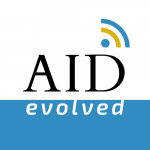
Dr. Eric Brewer is a remarkable man. He founded a company that made it to the NASDAQ-100 within 4 years. He shaped the backbone of the modern day web. He’s gained, and lost, a billion dollars. He is professor emeritus at UC Berkeley, Google Fellow, and VP of Infrastructure.
Today we speak with Eric about his efforts to harness technology research to serve the world’s poorest. Eric created and ran the Technology and Infrastructure for Emerging Regions (TIER) research group at UC Berkeley co-hosted with Intel Research from 2003 to 2008. In doing so, he lay the foundation for a new kind of computer science research: ICTD (information and communication technologies for development).
Anyone working in the aid sector knows that the ‘holy grail’ of our work is successfully handing an intervention off to local government to scale and sustain. Eric did this successfully when he worked with President Clinton to create USA.gov. We also take the time in this conversation to find out how he won President Clinton’s attention and support for this effort, and the role he played to ensure this resource continues to be available to the American people today.
If you’re an ICTD researcher looking to understand how this field was born, or you’re an ICTD practitioner looking to transfer a system to government, you’ll enjoy this glimpse into Eric’s world.
Show Notes
- USA.gov is the website of the federal government of the United States. To this day, on its history page, it reads “USA.gov got its start when Internet entrepreneur Eric Brewer offered to donate a powerful search engine to government.”
- Technology and Infrastructure for Emerging Regions (TIER) was a research laboratory that Eric ran out of the University of California, Berkeley, and the Intel Research Lab in Cambridge starting in 2003. In recent years, this effort has evolved into the work of the Development Impact Lab and associated efforts.
- Technology for Developing Regions: In this 2008 talk at UC Berkeley, Eric describes the inspiration, hypotheses, and work of TIER.
- The Case for Technology in Emerging Regions: This publication from the IEEE Computer Society describes the initial argument for the creation of a new field of academic research focused on systems development to aid in the fight against poverty.
- Inktomi was a technology startup that Eric founded with his graduate student Paul Gauthier in 1996. It was one of the few web companies listed in the Nasdaq 100 by the year 2000. Inktomi was acquired by Yahoo! in 2003 for over 241 million USD.
- The Wild Ride of Inktomi: A Personal View of the Internet Bubble: This is a fascinating talk that Eric gave for the Computer History Museum in 2008. It goes in depth into his personal experience riding the high and the crash of the dot-com bubble in the late 90’s.
- Planners versus Searchers in Foreign Aid – William Easterly: Eric emphasizes the importance of failing fast and learning quickly, particularly when “any top-down approach is going to be wrong”. In so doing, he cites the economist William Easterly’s idea of “searching for solutions”. This open-access paper from the Asian Development Review details Easterly’s thinking on searching for solutions.
- Infinite Vision: How Aravind Became the World’s Greatest Business Case for Compassion: This book provides a peek inside the story, ambition, operations and impact of Aravind Eye Hospital. Aravind has independently managed and sustained the wireless broadband solution which they initially developed with Eric and his students.
- Pioneering Eye Surgery Network Receives 2008 Gates Award for Global Health: The Gates Award for Global Health – the world’s largest prize for international health at the time – was given to the Aravind Eye Hospital in 2008, in recognition of the significant strides it had made to reduce blindnesss in India. This was made possible inpart by the use of high-speed broaband links between “eye camps” and central hospitals.
- Endaga is a technology startup that emerged from TIER and was acquired by Facebook. It was founded by three of Eric’s graduate students, Kurtis Heimerl, Shaddi Hasan, and Kashif Ali. Its mission was to help rural communities build and maintain their own cellular network. It is one of three examples Eric named for how ICTD research transitions into practice.
- Denovo Group is a nonprofit spinoff from TIER. Its mission is to turn novel university research into applicable technological solutions to address the needs of deserving communities in developing regions. It is one of three examples Eric named for how ICTD research transitions into practice.
- The economic contribution of broadband, digitization and ICT regulation: This briefing describes how a 10% increase in mobile broadband penetration yields a 2% increase in GDP in low-income countries. It was published by the ITU, a specialized agency of the United Nations responsible for all matters related to information and communication technologies. This is cited by GSMA, the the industry association of mobile network operators, in their 2019 State of Mobile Internet Connectivity.